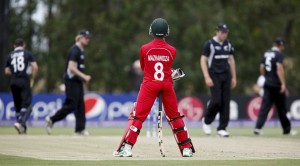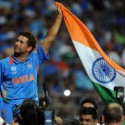
Zimbabwe – Nothing to Lose in 2015 Cricket World Cup?
The Zimbabwean cricket paints a sad and tragic story of what happens when politics and insurgency gets mixed with cricket. Once Zimbabwe had some of the finest players in the world and the team was at par with other strong teams. But now, times have changed and the poverty-ridden country is neither capable of supporting the growing popularity of cricket, nor does it have a strong infrastructure in place to develop a new pool of players after the washout of their established players. As a result the game and the players, both are at the receiving end and the Zimbabwean team are not really in the picture. At one point, the situation had become so distressed that during overseas tours, Zimbabwean players were often said to be buying necessities which were unavailable – or prohibitively expensive – at home.
Zimbabwe got off to a roller coaster start in the World Cup by beating Australia in its first match in the 1983 edition. But it lost all of its subsequent five games that year and all six games in the next edition in 1987. Zimbabwe fared poorly in the World Cup games thereafter but they did manage to stage upsets by beating England in the 1992 and Kenya in 1996 editions. Zimbabwe then came from behind to reach the peak of their form in the 1999 World Cup where they enjoyed a successful run, beating Kenya, India and South Africa. They lost out on a semi-final berth only because of an inferior run-rate than New Zealand. Nevertheless, their reaching of Super 6 stage, leaving behind some strong contenders like England and Sri Lanka, was indeed commendable. The 2003 World Cup, where they were the co-hosts along with Kenya and South Africa, once again proved to be a successful venture for them as they beat Namibia, England and Netherlands to enter the Super 6. The 2007 World Cup was a forgettable one as they lost all their three matches. In the 2011 World Cup, they beat Kenya and Canada but were outplayed by all other teams.
The positive signs for Zimbabwe is that it’s still considered stronger than most of other minnows. In fact its status of being a Test playing nation officially distinguishes from the rest of the weak teams. But ‘weak’ is a word that looks best only on a paper. Because in an unpredictable game like the 50 overs One-Day match, the scenarios change pretty quickly and it doesn’t take long enough before the fortunes switch sides. And if Zimbabwe manages to find from somewhere, enough motivation and strong inspiration to stand face-to-face with strong teams, then they can really turn around their own destiny.







